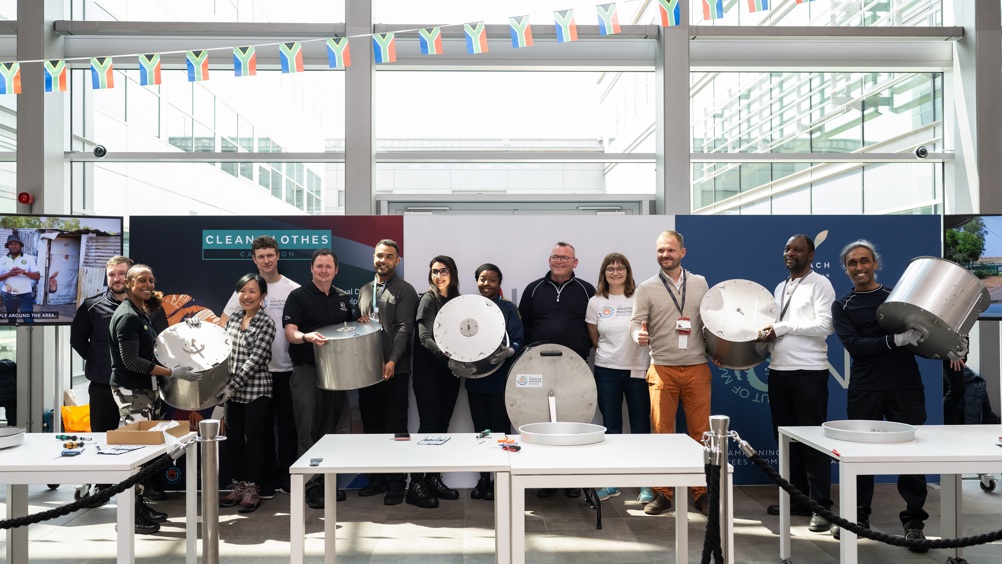JLR engineers build sustainable manual washing machines
Jaguar Land Rover (JLR) has collaborated with The Washing Machine Project to build ten manual washing machines for a community in Diepsloot, Johannesburg.

JLR said its Clean Clothes Campaign aims to help tackle the burden of handwashing clothes and promote gender equality by relieving women and children of up to 20,000 hours of chores a week, so they can enjoy their rights to work, education, leisure and good health.
The year-long campaign has seen JLR engineers volunteering their skills and time, as well as leading fundraising efforts across the workforce. The company’s Race, Ethnicity and Cultural Heritage (REACH) network, for instance, raised over £4,900 in funding for the project.
The volunteer engineers used their automotive knowledge and skills to enhance the design and functionality of the Divya washing machines, to meet the needs of households in the South African villages.
With support from its freight team, JLR delivered the Divya washing machines, built at its Gaydon HQ in the UK to the communities in South Africa using one of its Defender vehicles.
In a statement, Mandisa Gordon, JLR’s Finance Business Change manager, who led the campaign on behalf of JLR, said: “JLR is dedicated to making an impact in communities where the need is greatest. We were overwhelmed by the huge support we received from our colleagues in the UK and in South Africa, to make this initiative a success. Participating in food parcels and personal care product deliveries, as well as fundraising, has been some of my proudest moments.”
Register now to continue reading
Thanks for visiting The Engineer. You’ve now reached your monthly limit of news stories. Register for free to unlock unlimited access to all of our news coverage, as well as premium content including opinion, in-depth features and special reports.
Benefits of registering
-
In-depth insights and coverage of key emerging trends
-
Unrestricted access to special reports throughout the year
-
Daily technology news delivered straight to your inbox










Water Sector Talent Exodus Could Cripple The Sector
Maybe if things are essential for the running of a country and we want to pay a fair price we should be running these utilities on a not for profit...